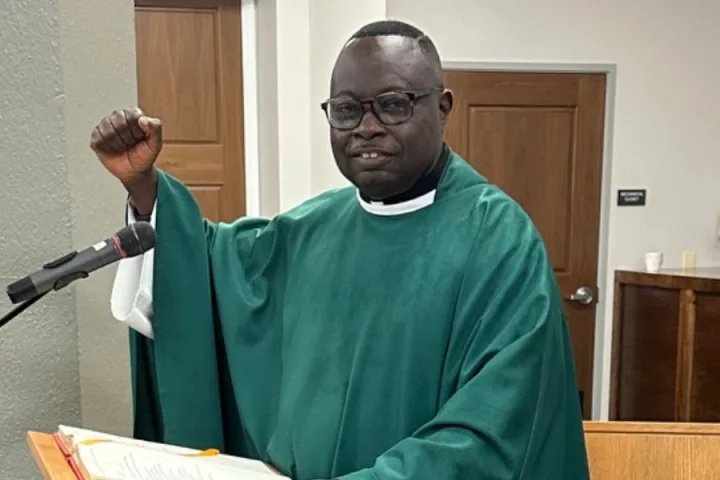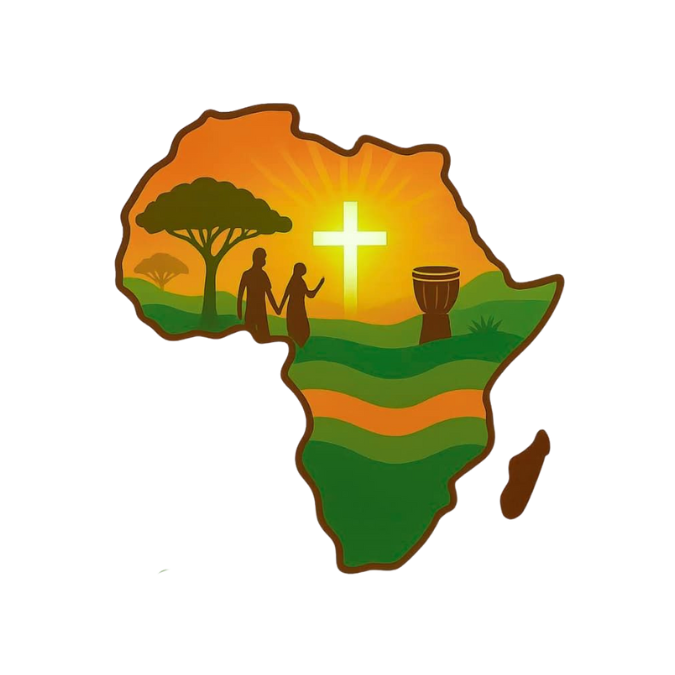
In a world marked by conflict and humanitarian fatigue, the story of one priest from Sierra Leone reminds us that faith can still rebuild nations, one wounded heart at a time.
From the Ashes of War
In a world where humanitarian crises multiply and faith often retreats before violence, the story of Fr. Peter Konteh, a Sierra Leonean priest, offers a profound counter-narrative. His life and ministry—chronicled in Sent to Heal a Wounded Nation by journalist Agnes Ainea—is more than an inspiring biography. It is a living testament to the possibility of resurrection from the ruins of war.
A recent episode of Voice Afrique, hosted by Fr. Stan Chu Ilo, spotlighted Fr. Konteh’s journey alongside the deeper wounds and fragile hopes of Sierra Leone—a nation still healing from a brutal civil war (1991–2002) that claimed over 50,000 lives and displaced nearly two million.
“Sierra Leone is wounded in so many ways,” said Ainea during the interview. “There are still amputees on the streets, young girls living with trauma, and slums that formed during the war now entrenched around Freetown.”
Fr. Peter’s priesthood began amid that chaos. Ordained during the war, his first assignment was not to a parish celebration but to distribute food in a camp for displaced people—a humble act that became the beginning of a lifelong ministry of presence and healing.
Today, as Executive Director of Caritas Freetown, he leads humanitarian programs that support survivors of sexual and gender-based violence, rebuild communities, and restore dignity where despair once reigned.
Healing in the Ruins
Agnes Ainea’s motivation for writing Sent to Heal a Wounded Nation was not to dwell on tragedy, but to elevate hope.
“We often overlook the people doing extraordinary things in the Church,” she said. “Fr. Peter didn’t wait for resources—he works miracles with nothing. Even children in the slums know his name.”
Under his leadership, Caritas Freetown has become a trusted first responder in moments of crisis—from urban fires and flash floods to the trauma of displacement and violence. In 2022, Ainea visited Sierra Leone to witness his work firsthand. What she saw convinced her the story had to be told in full.
A New Model for Humanitarian Ministry
In a continent where foreign aid often flows one way, Fr. Peter’s ministry presents a different vision—one rooted in African agency and reciprocity. Rather than merely receiving assistance, Caritas Freetown now partners with global organizations, sharing its expertise in trauma care, disaster relief, and post-conflict reconstruction.
“He challenges the dependency mindset,” said Ainea. “Fr. Peter shows that Africans can also give back—through knowledge, leadership, and spiritual vision.”
This approach signals a quiet theological revolution: a shift from viewing Africa as a continent of need to recognizing it as a continent of gift. It embodies a spirituality that begins not with scarcity, but with dignity and mutuality.
Lessons for Africa—and the Church
Fr. Stan Chu Ilo observed that Fr. Peter’s witness offers a model for peacebuilding far beyond Sierra Leone. Across Africa—from Congo to Nigeria, South Sudan to the Central African Republic—nations still struggle to emerge from the shadow of violence. In this context, Sierra Leone’s recovery and peaceful interreligious coexistence offer a vital sign of hope.
Despite being roughly 77% Muslim and only 20% Christian, Sierra Leone has largely avoided sectarian conflict. Interfaith families are common; mosques and churches often share the same neighbourhoods.
“This peaceful coexistence is a gift to West Africa,” Ainea said. “It shows what’s possible when religious identity is not weaponized but woven into the fabric of community.”
Even the Catholic Bishop of Bo, she noted, comes from a Muslim family—a quiet symbol of harmony in a region often marked by mistrust.
The Ministry of Remembering
Fr. Peter’s story is not only one of service, but also of memory. Ainea emphasizes that the work of healing also involves remembering those who rebuilt hope when the nation was broken.
In preserving his story, Sent to Heal a Wounded Nation becomes more than biography—it is a sacrament of resilience, a reminder that faith lived in action can restore not only souls but societies.
The book is now available on Amazon and in Pauline Book Centres across Africa. A formal launch is scheduled to coincide with Fr. Peter’s upcoming priestly anniversary.
A Final Prayer
The Voice Afrique episode concluded with a simple, heartfelt invocation for Sierra Leone—and for all of Africa’s wounded nations:
“Breathe your Holy Spirit, O Lord, upon your Church, upon your people,” prayed Fr. Stan.
“Breathe new life into our nations, that from the ashes of suffering may rise a new dawn.”
If Africa continues to tell and live the stories of witnesses like Fr. Peter Konteh, that new dawn may already be breaking.



